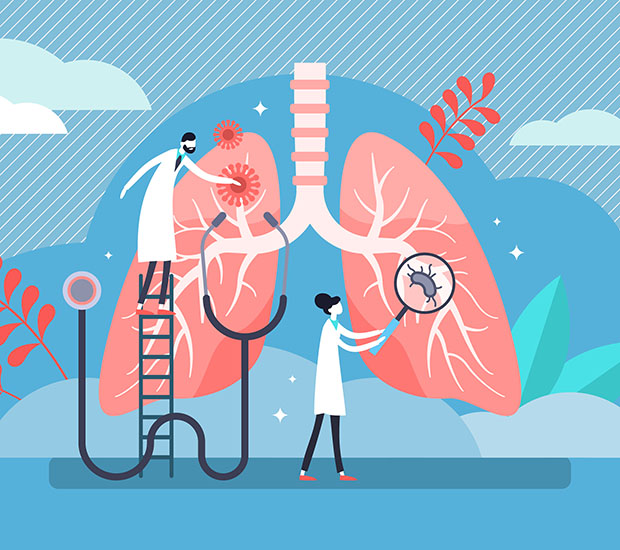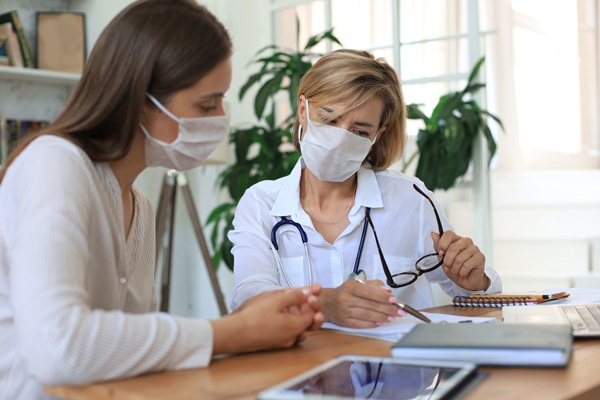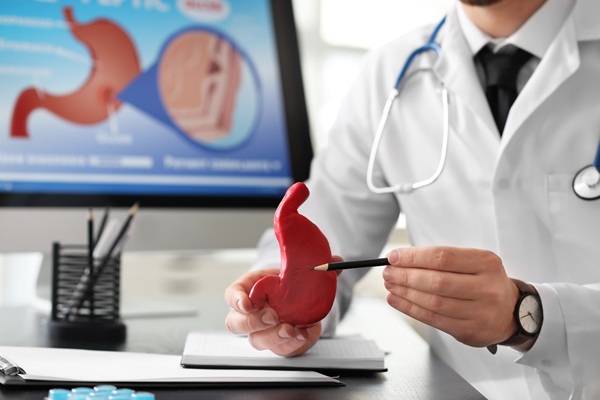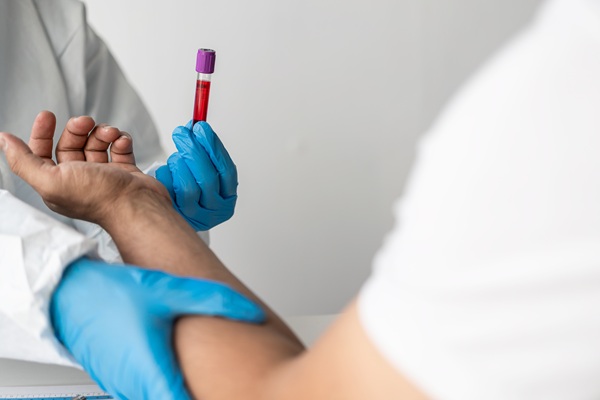Lung Cancer TreatmentMarlton, NJ
Our oncologists specialize in the diagnosis and treatment of lung cancer. There are two main types of lung cancer, and it is crucial to obtain an accurate diagnosis in order to receive the right treatment and fight off the disease. Although a diagnosis of lung cancer can be frightening, cancer is best treated when detected in its early stages. Therefore, it is important to know and understand the signs and symptoms of the disease and seek immediate treatment.
At Lindenberg Cancer & Hematology Center, we offer lung cancer treatments for patients who have been diagnosed. Our team can offer various treatments, information, and support from diagnosis to recovery. To learn more about a procedure or schedule an appointment, call (856) 475-0876 today.
What is Lung Cancer?
Lung cancer is a type of cancer that begins in the lungs, the two organs responsible for taking in oxygen as we breathe. Though lung cancer begins in the lungs (hence, its name), the cancer cells can quickly spread to other parts of the body, from the lymph nodes to the brains. The disease most often occurs in people who smoke.
There are two main types of lung cancer: small cell lung cancer and non-small cell lung cancer. Non-small cell lung cancer, or NSCLC, is more common with 80-85% of lung cancer diagnoses. NSCLC consists of three subtypes: adenocarcinoma, squamous cell carcinoma, and large cell carcinoma. This type of lung cancer is most common in those who smoke, have formerly smoked, or take in a lot of secondhand smoke. Small cell lung cancer, or SCLC, only occurs in about 10-15% of cases. However, SCLC spreads faster and is often diagnosed after the cells have spread throughout the body.
Causes of Lung Cancer
Smoking is the most common cause of lung cancer in most patients, either through self-use or secondhand. According to Mayo Clinic, smoking causes lung cancer by damaging the cells that line the lungs. Cigarette smoke is full of cancer-causing substances (carcinogens), and inhalation of these substances causes changes in the lung tissue almost immediately. However, lung cancer can occur in those who have never smoked or been exposed to secondhand smoke.
It is important to know and understand risk factors in aiming to prevent lung cancer. Aside from smoking and exposure to second-hand smoke, risk factors include previous radiation therapy, exposure to radon gas, exposure to asbestos and other carcinogens, and family history of lung cancer. To help prevent acquiring the disease, we highly advise quitting smoking, avoiding secondhand smoke, testing the home for radon, avoiding carcinogens at the workplace, eating a nutritious diet, and exercising regularly.
Common Symptoms of Lung Cancer
There are varying symptoms in every individual, depending on the cause and severity of their condition. Symptoms also differ when cancer cells have spread to other parts of the body. Some patients may experience symptoms early on, while some do not experience any at all.
Nonetheless, it is crucial to know and understand common signs and symptoms for early detection of the disease. The CDC notes the following as common symptoms of lung cancer:
- Coughing that gets worse or does not go away
- Chest pain
- Shortness of breath
- Wheezing
- Coughing up blood
- Feeling tired all the time
- Weight loss with no known cause
How Lung Cancer is Diagnosed
Due to the severity and aggressive nature of the disease, it is possible to request a lung cancer check. Diagnosing lung cancer involves a variety of imaging tests and exams. We begin by taking chest X-rays to determine any abnormalities in the lungs or surrounding tissues. We will also order lab tests, such as an advanced genomic test and nutrition panel. Once lung cancer is highly plausible, we will order a PET, CT scan, and endobronchial ultrasound.
In advanced cases, a patient may require a biopsy, in which we remove a small piece of tissue to examine and check for cancer cells. We will likely need to run an autofluorescence bronchoscopy, navigational bronchoscopy, and robotic bronchoscopy to get a better idea of the type of cancer and stage a patient is in. Once diagnosed, we will continue to run imaging and laboratory tests to monitor the size and progression of the tumor.
Lung Cancer Treatment
There are a variety of lung cancer treatments that depend on the patient’s lung cancer type, lung cancer stage, and lung cancer treatment goals. Once a patient has been diagnosed, we will review the treatment options with them, which may be just one treatment or a combination of treatments.
The American Lung Association provides the most common treatment options for lung cancer, including surgery, chemotherapy, radiation therapy, targeted therapy, immunotherapy, supportive and palliative care, and complementary or alternative lung cancer therapies. Each type of treatment has its own set of complications and side effects, but some options may work better for certain individuals. We do our best to implement the most effective and reliable treatment for each patient to combat the disease.
Schedule a Visit Today
Lung cancer consultations and treatments are available at our office. The Lindenberg Cancer & Hematology Center team looks forward to treating you and helping you on your way to recovery. Call our office at (856) 475-0876 to learn more or schedule an appointment.
Frequently Asked Questions About Lung Cancer Treatment
Is there a cure for lung cancer?
Although there is no definitive cure, patients may recover from the disease, and many do not have recurrence or fall into remission. Modern advancements in early detection and treatment have greatly aided in accelerated and long-term recovery time. The earlier the disease is detected, the more desirable the results.
How can second-hand smoke affect me?
Second-hand smoke increases the chances of developing chronic bronchitis and other upper respiratory conditions. Breathing in secondhand smoke also increases your risk of developing lung cancer. However, you can minimize this risk by asking others to smoke outside and avoiding smoking areas in public.
What are the genetic risks of developing lung cancer if a parent had it once before?
There is an increased risk of developing any type of cancer if a parent had cancer in the past. Those who have a parent with lung cancer or recovered from it should get checked regularly and undergo all yearly screenings. If you are also a smoker, it is highly advised to quit smoking immediately as smoking can double the chances of acquiring the disease.
What is the percentage of non-smokers who develop lung cancer?
According to John Hopkins Medicine, approximately 8% of those with lung cancer occur in non-smokers. The percentage is quite low, but this number likely includes those with other associated risk factors.
Do e-cigarettes and vapes have a link to lung cancer?
Although there is not enough research or evidence on e-cigarettes and vapes, any type of smoke or chemical entering the lungs increases the chances of developing lung cancer. This is because the lungs are trained to work in a way, and harmful chemicals interfere with that process. We recommend reading into the particular device you use for more detailed information.
Contact Us
Lindenberg Cancer & Hematology Center is located at
773 East Route 70 Suite E-125
Marlton,
NJ
08053





